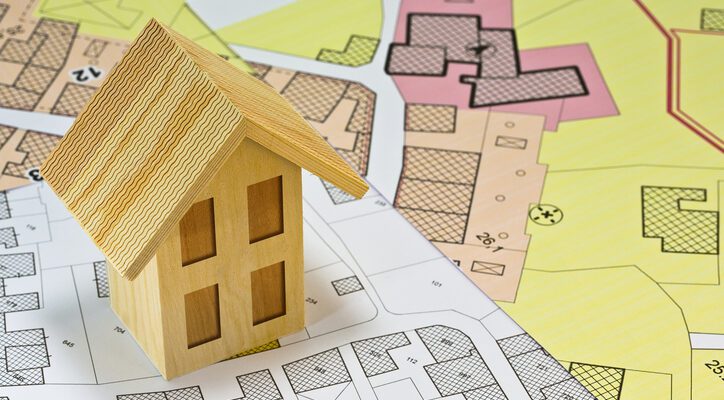Sometimes a property owner or developer will need special permission from a local board to undertake a project in compliance with “land use” laws. In North Carolina, when that permission requires the board to apply subjective legal standards to the facts presented, a “quasi-judicial proceeding” is required. Many applicants in land-use requests – and even many boards, especially in small towns – are not familiar with the term “quasi-judicial,” much less its ramifications. But these types of proceedings create hazards for the unwary that can make or break a desired outcome.
Land-use decisions in North Carolina fall into one of a few categories. For example, whether a tract of land will be rezoned from one type of zoning to another is usually a “legislative” decision. In other words, it’s basically a political decision that a town council will make, based whether the council thinks it’s a good idea. Council members will decide the matter, for the most part, based on their own judgment and opinions that they receive from citizens. Another category of land-use decision is an “administrative” decision. For example, a town may have a rule that involves objective criteria – such as a maximum height for a building, or a minimum setback from the road. Typically, a town employee can decide whether the rule is satisfied, since there should be little debate about criteria that are readily measurable or confirmable. In between legislative decisions and administrative decisions are quasi-judicial proceedings, in which a board will hear evidence regarding the request and decide whether the evidence meets the subjective standards for approval. For example, a board may be authorized to grant a request only upon a finding that it does not “materially endanger public or health or safety” or “substantially injure the value of adjoining property.”
The type of board that will hear a quasi-judicial proceeding is often a Zoning Board of Adjustment, but may be the Town Council or Planning Board, depending on the town’s local “ordinances.” Often, the board may consist of volunteers with no legal expertise or significant training in planning and land development. In a quasi-judicial proceeding, the board will be required to take evidence in accordance with the law and then weigh the evidence to determine whether a request meets the standards in the ordinance. In short, the board plays a role very similar to a judge in court; thus, the term “quasi-judicial.”
Quasi-judicial proceedings are used for decisions such as: variances (where the applicant seeks an exception to a land-use rule); special use permits (where a certain type of “use” is allowed in a zoning district only with special permission); certificates of appropriateness (where a property can only be modified in a way that is consistent with the era of a historic neighborhood); and appeals of decisions by town staff. Quasi-judicial proceedings will involve a hearing that occurs after notice is provided to the applicant and other directly affected property owners. Both proponents and opponents of the request should come to the hearing well-prepared. Important considerations include:
· Standing: Whether you are a party with “standing” will determine the extent of what you can do at the hearing. If you’re not a property owner or resident in the vicinity of the property in controversy, you might not have standing.
· Standards: What are the applicable standards that must be met for the request to be approved? Don’t develop a strategy until you know the rules of the game (which will may involve researching the town ordinances).
· Experts: To prove (or disprove) the applicable standards, will you need an expert witness, or can a layperson provide an opinion? In particular, an expert may be needed on issues such as whether a project will decrease neighborhood property values or create an unsafe amount of additional traffic.
· Procedure: What are the details of how the hearing will be conducted? What opportunities are there to present evidence, conduct cross-examination, make objections, or argue in support of your position?
· Appeal: How and when must any appeal be undertaken?
Attending a quasi-judicial proceeding without being prepared for a “court-like” experience is a mistake. While the board may be generous with an unprepared applicant in a small unopposed matter, adequate preparation and knowledge of the quasi-judicial process are crucial in a matter that is hotly contested or has high financial stakes. Regardless of whether you support or oppose the request, obtaining counsel with experience in representing local governments and/or developers in land-use matters is a sound investment.
 Elliot Fus has served as town attorney for several North Carolina municipalities and has represented private parties in land use matters. He is a member of the N.C. Association of Municipal Attorneys and leads the firm’s Litigation Practice Group.
Elliot Fus has served as town attorney for several North Carolina municipalities and has represented private parties in land use matters. He is a member of the N.C. Association of Municipal Attorneys and leads the firm’s Litigation Practice Group.

